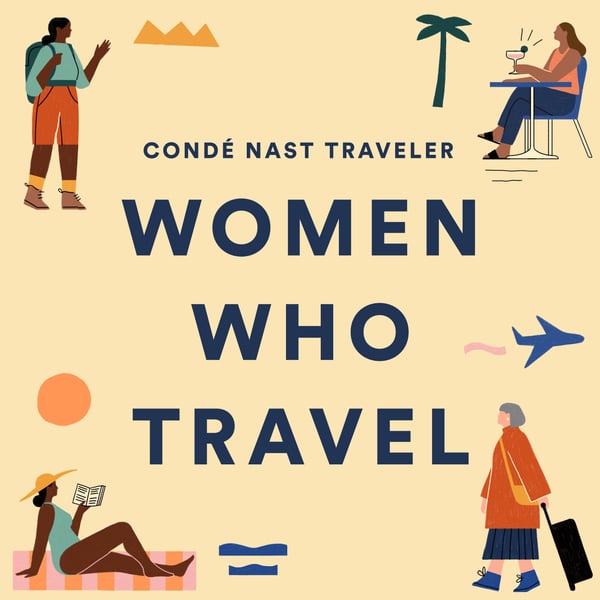The Global Power of Eyeliner
Women Who Travel | Condé Nast Traveler
Condé Nast Traveler
4.4 • 636 Ratings
🗓️ 7 December 2023
⏱️ 28 minutes
🧾️ Download transcript
Summary
Is there a more universally used beauty product than eyeliner? Not according to author Zahra Hankir, who chats with Lale about her new book Eyeliner: A Cultural History, which looks at the meaning and symbolism of kohl around the world, from Kyoto to Chad, as well as throughout the Middle East—and dives into her own personal history with the enduring piece of makeup.
Learn about your ad choices: dovetail.prx.org/ad-choicesTranscript
Click on a timestamp to play from that location
| 0:00.0 | Hi, I'm Lale Arakoglu, and welcome to another episode of Women Who Travel, a podcast from Condénaz Traveler. |
| 0:12.0 | Today we're talking about a time-honored beauty product, eyeliner, and how its use is both similar and different all over the world. |
| 0:22.3 | And yes, we do get to talk about Amy Winehouse. |
| 0:25.7 | But before we begin, we're asking for your feedback on our show. |
| 0:29.7 | We'd love to know what stories you'd like to hear and what you've enjoyed most and the least. |
| 0:35.3 | Go to Apple Podcasts and leave us a review. |
| 0:38.7 | What are you actually striving for when you're lining your eyes? For a lot of people, |
| 0:44.2 | it's aesthetic, it's about looking better, it's about some form of transformation. But really, |
| 0:49.1 | I would say for most people, especially minority communities, it's about transformation in a way that goes far deeper. |
| 0:58.2 | It's transforming the message that you're delivering to the world. It really is to convey something |
| 1:04.0 | that has to do with your sense of self. In Zara Hankir's book, Eyeliner, a Cultural History, |
| 1:09.6 | she goes to six countries and explores our |
| 1:12.5 | personal relationship to the ancient product, as well as its use of stage makeup, its medicinal |
| 1:18.4 | properties, and how it can be a signifier of rebellion and identity. What I try to do is to deflect |
| 1:24.5 | from the Western gaze to say, these are the contributions of these |
| 1:28.3 | communities to the beauty industry. There's a passage at the end of your book, which is actually a |
| 1:34.1 | wonderful entry point into this discussion. Would you mind sharing a little bit before we start |
| 1:41.3 | talking? Absolutely. So this is from the acknowledgement section actually, |
| 1:45.8 | and I write, on my birthday in October 2020, at the height of the COVID-19 pandemic, I was |
| 1:52.9 | stuck between continents, having packed up my flat in London to relocate to New York City, while in |
| 1:58.9 | limbo I stayed with my parents in Lebanon. Though I tied with the idea |
| 2:03.6 | of this book, I felt in particular in the aftermath of the Beirut's blast in August that year, |
... |
Please login to see the full transcript.
Disclaimer: The podcast and artwork embedded on this page are from Condé Nast Traveler, and are the property of its owner and not affiliated with or endorsed by Tapesearch.
Generated transcripts are the property of Condé Nast Traveler and are distributed freely under the Fair Use doctrine. Transcripts generated by Tapesearch are not guaranteed to be accurate.
Copyright © Tapesearch 2025.

